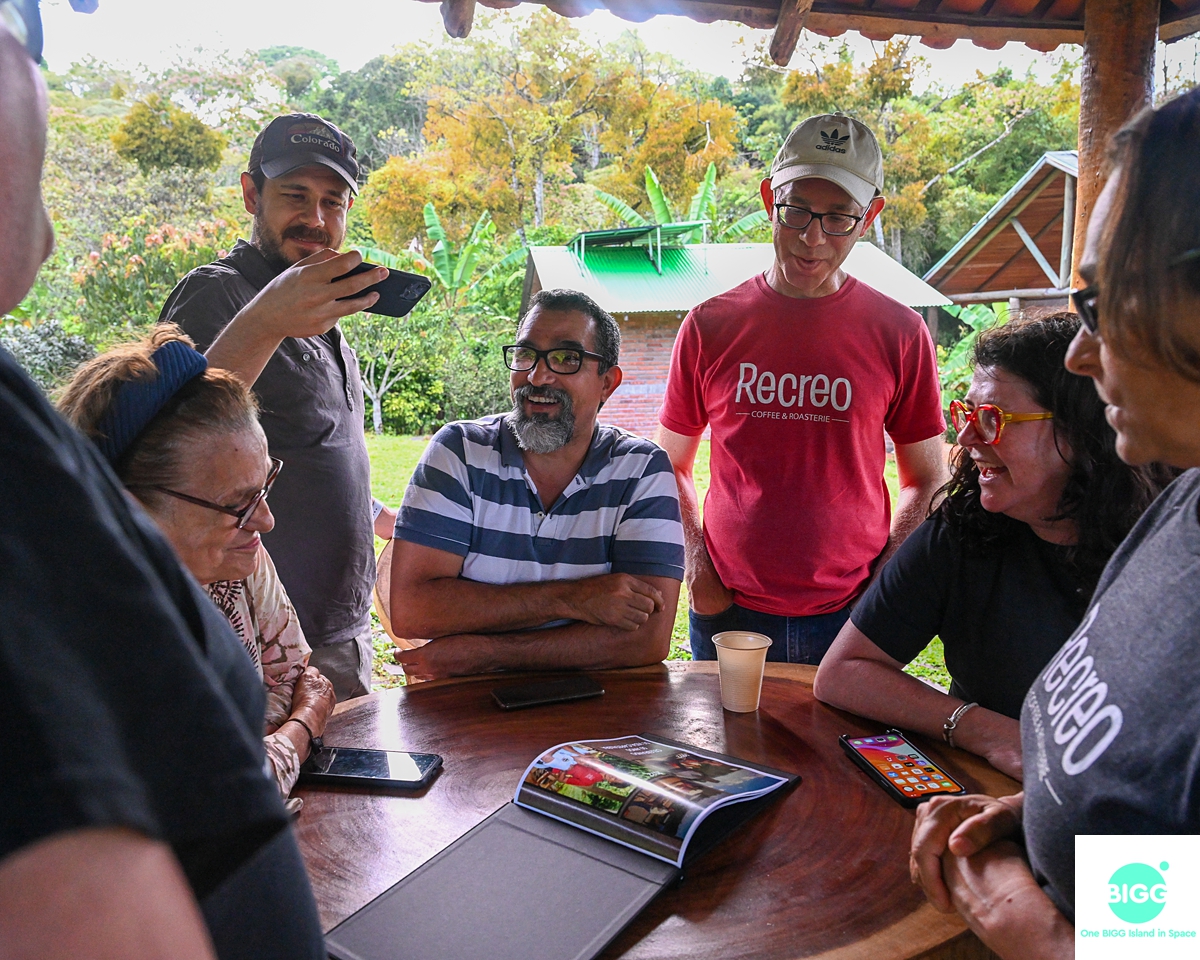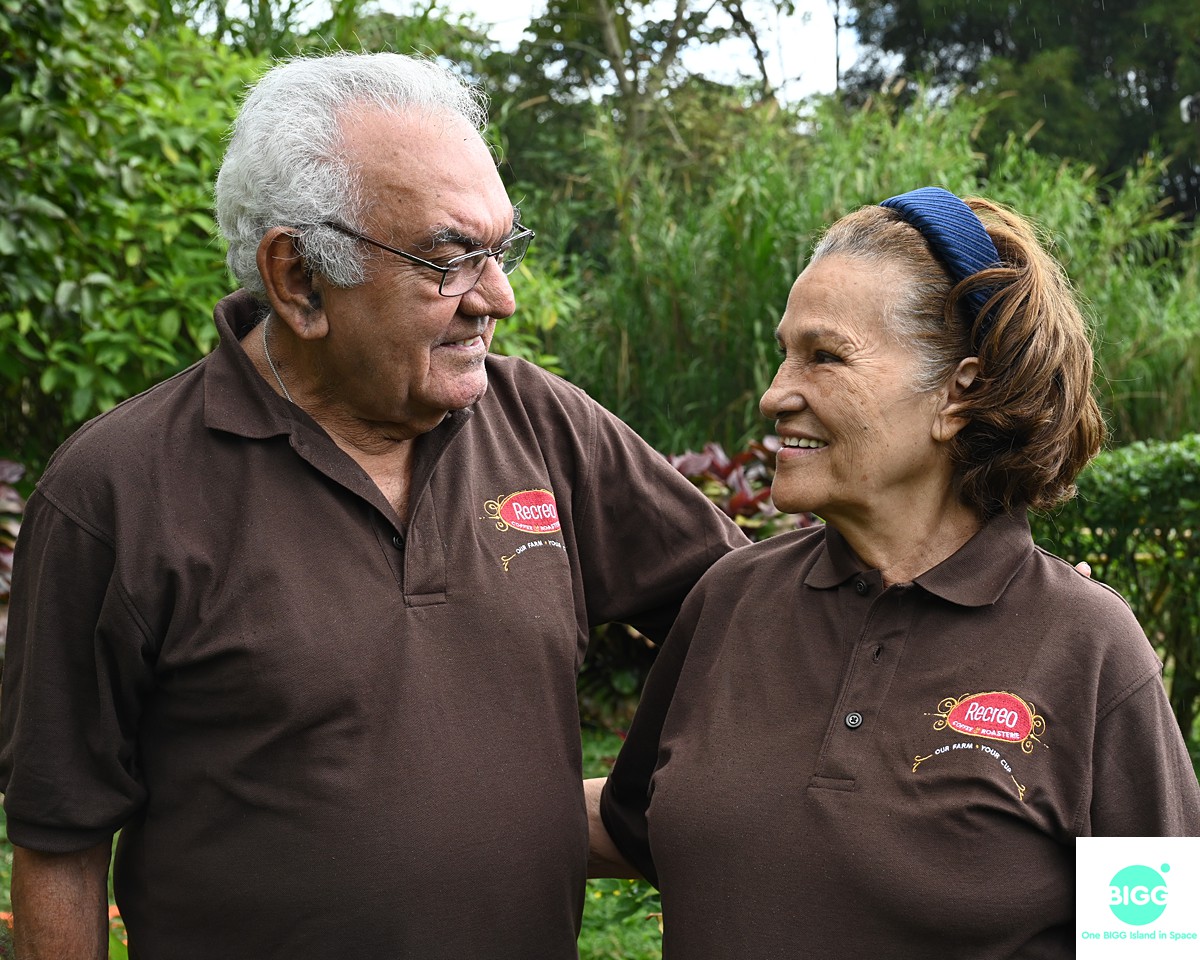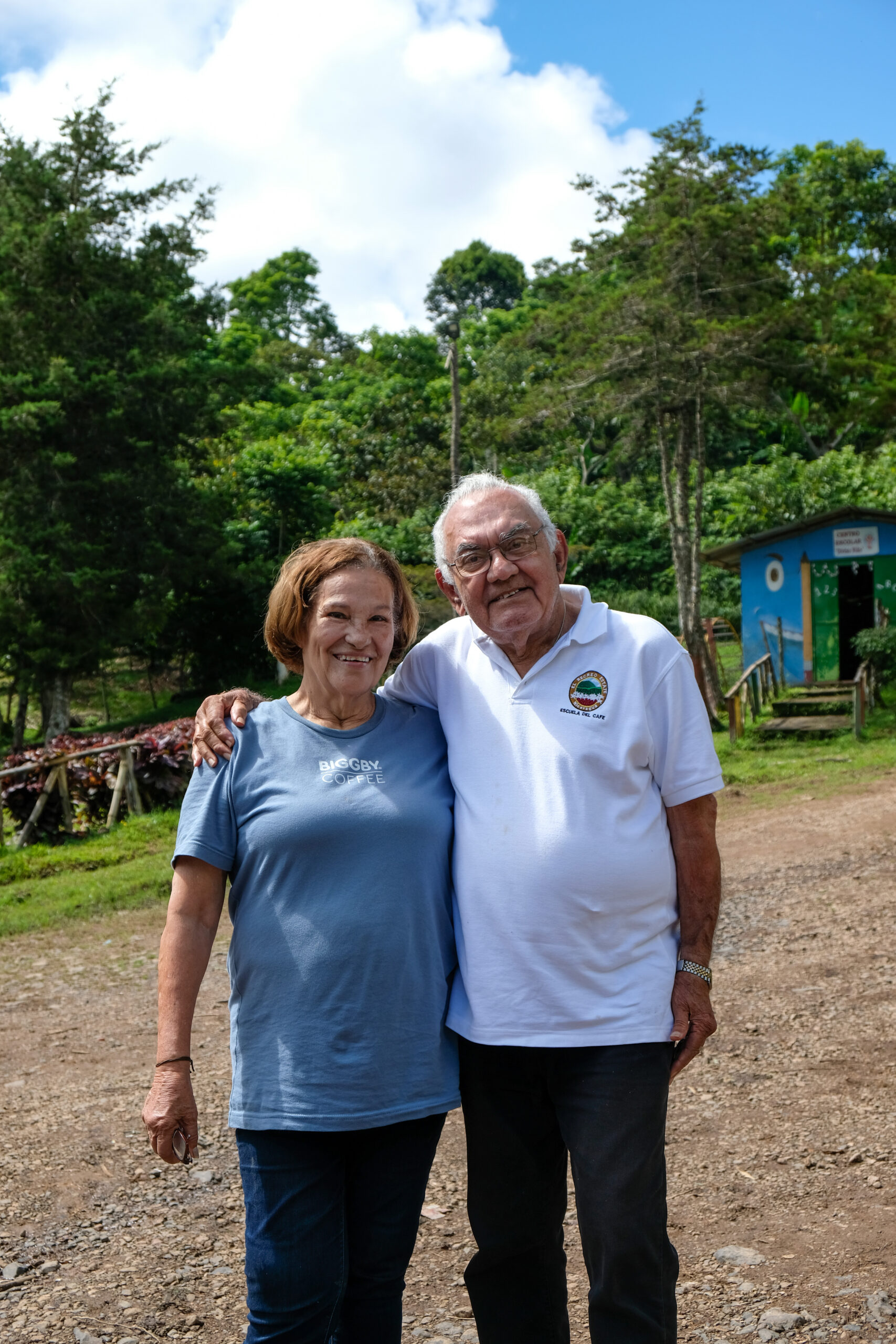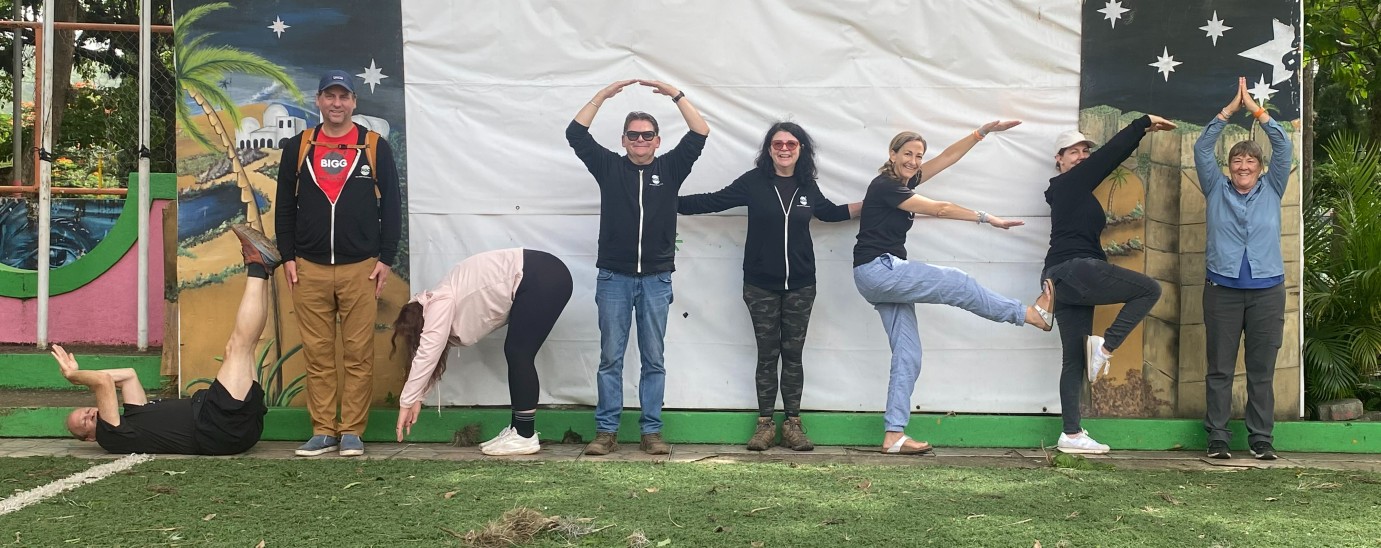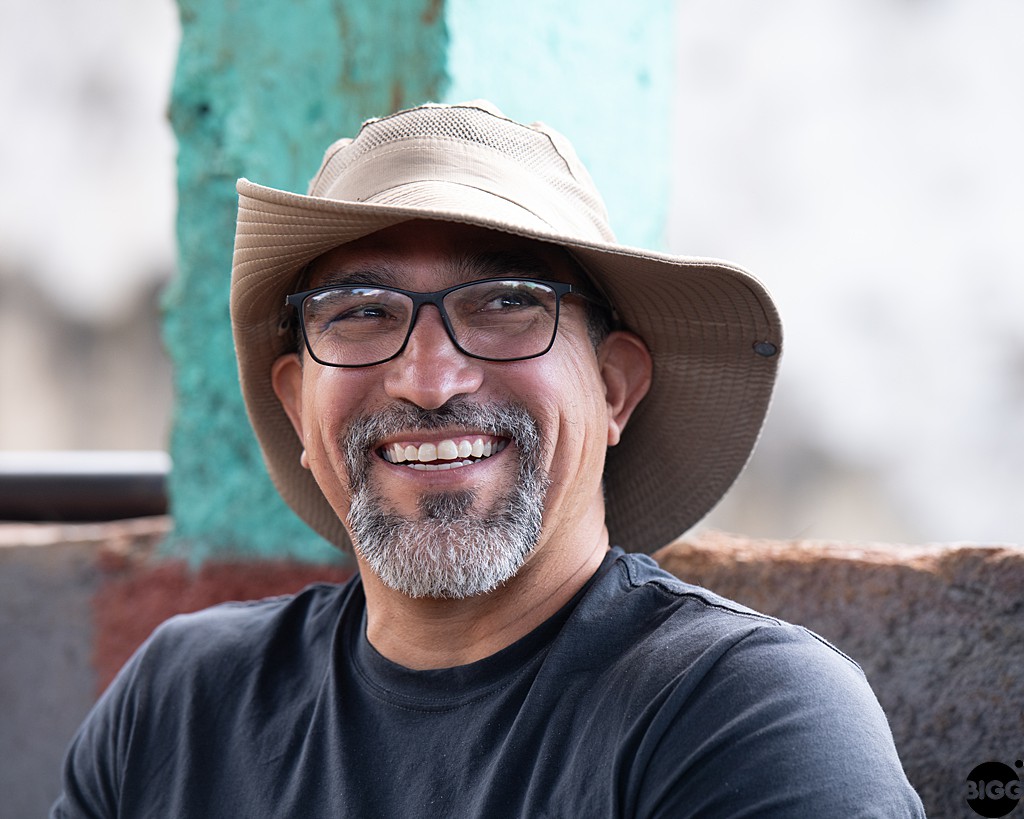By Michelle Fish
The last time Bob and I walked among the coffee bushes at the El Recreo Coffee Estate in Jinotega, Nicaragua, it was just before Christmas of 2019. The harvest season was ramping up, and the farm was all abuzz with the influx of seasonal workers. Our Farm-Direct partnership with Carlos and Leana Ferrey was newly minted. Although we had yet to receive our first container of coffee beans for the BIGGBY BEST blend, there was a feeling of optimism among our hosts and our travelling companions about what this partnership might mean for the Farm and the families that live and work there. And what it might mean for BIGGBY Nation.
Falling off a cliff
And then 2020 happened. Like most of the world, Bob and I had our travel wings clipped by COVID-19. It never occurred to us that it would be two years and then some before we would be able to get back to the Farm.
Of course, there have been plenty of Zoom meetings with Carlos and Leana, and their daughter and son in law, Miriam and Hector Morales. Based in Boston, Miriam and Hector import the Farm coffee on behalf BIGGBY COFFEE, as well as own and operate two cafes and a coffee roastery that exclusively sell the Farm’s coffee.
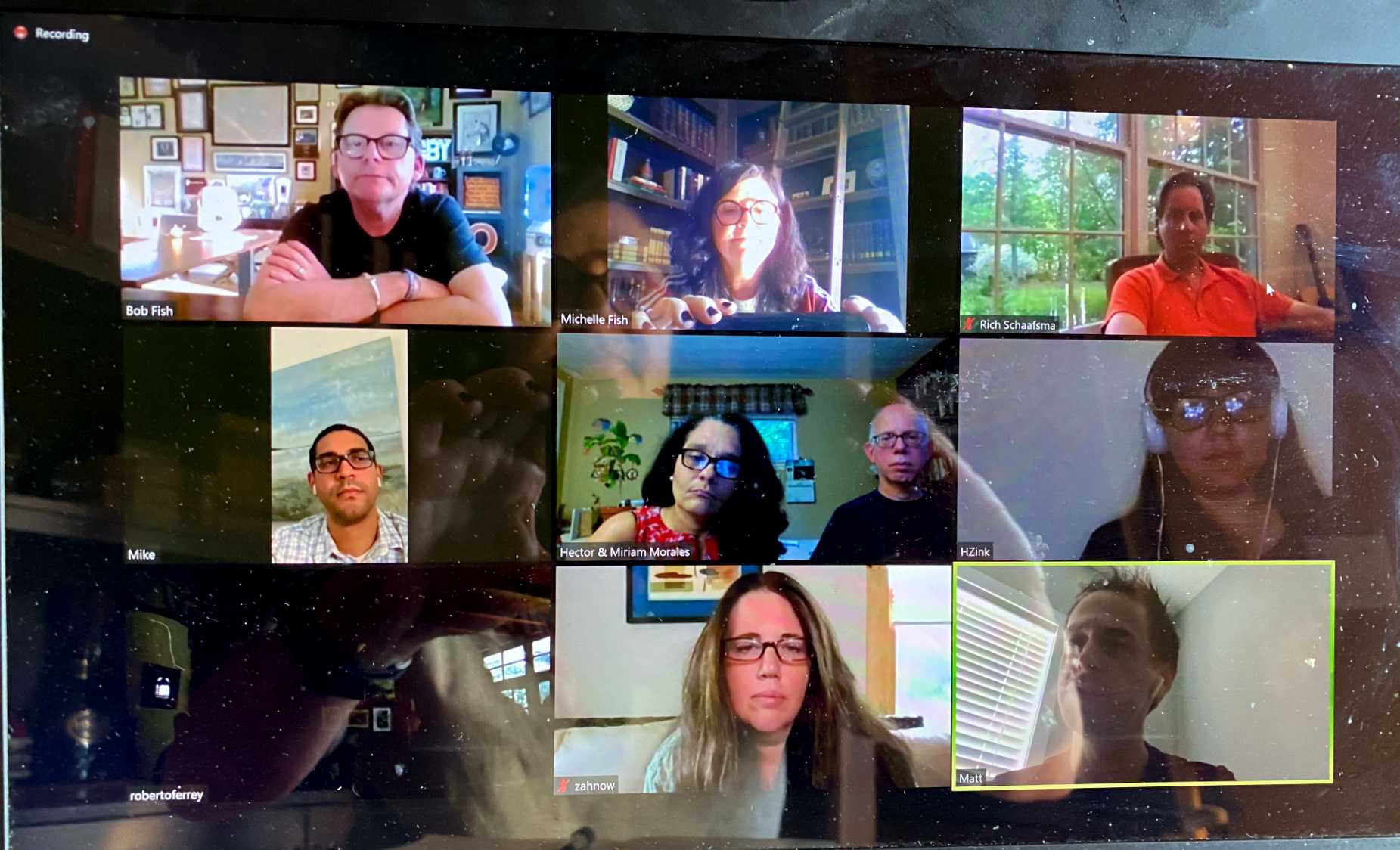
We have watched from a distance as the Farm tackled the challenges of keeping the workers and families on the Farm safe and healthy through COVID-19. And then worried with them as two back-to-back hurricanes battered the region. The supply chain disruptions that challenged daily life and business here in the US were felt like a shock wave throughout the Nicaraguan economy. Food prices doubled early in the pandemic and continued to rise. The cost for basic necessities like cooking fuel and cleaning supplies pushed past the ability of most people to acquire them. Access to health care, scant at the best of times, fell off a cliff during the pandemic. Although the Farm is a four-hour drive from the capital city of Managua, the political turmoil surrounding the 2021 Nicaraguan elections made daily life that much more complicated.
500,000 pounds
But overcoming struggle was not the only thing happening on the Farm in 2020 and 2021. In spite of all the challenges in the intervening months since our last visit, coffee production continued unabated. Thanks to our Farm-Direct partnership, BIGGBY COFFEE had purchased just north of 500,000 pounds of coffee from El Recreo during those two “lost” years. And, because of our commitment to be life-time partners, they know that we will be by their side to purchase their coffee in 2023, and beyond. As BIGGBY continues to grow, so will their access to a guaranteed marketplace to sell their coffee at a fair and sustainable price. So, what does two years of Farm-Direct partnership look like on the ground?
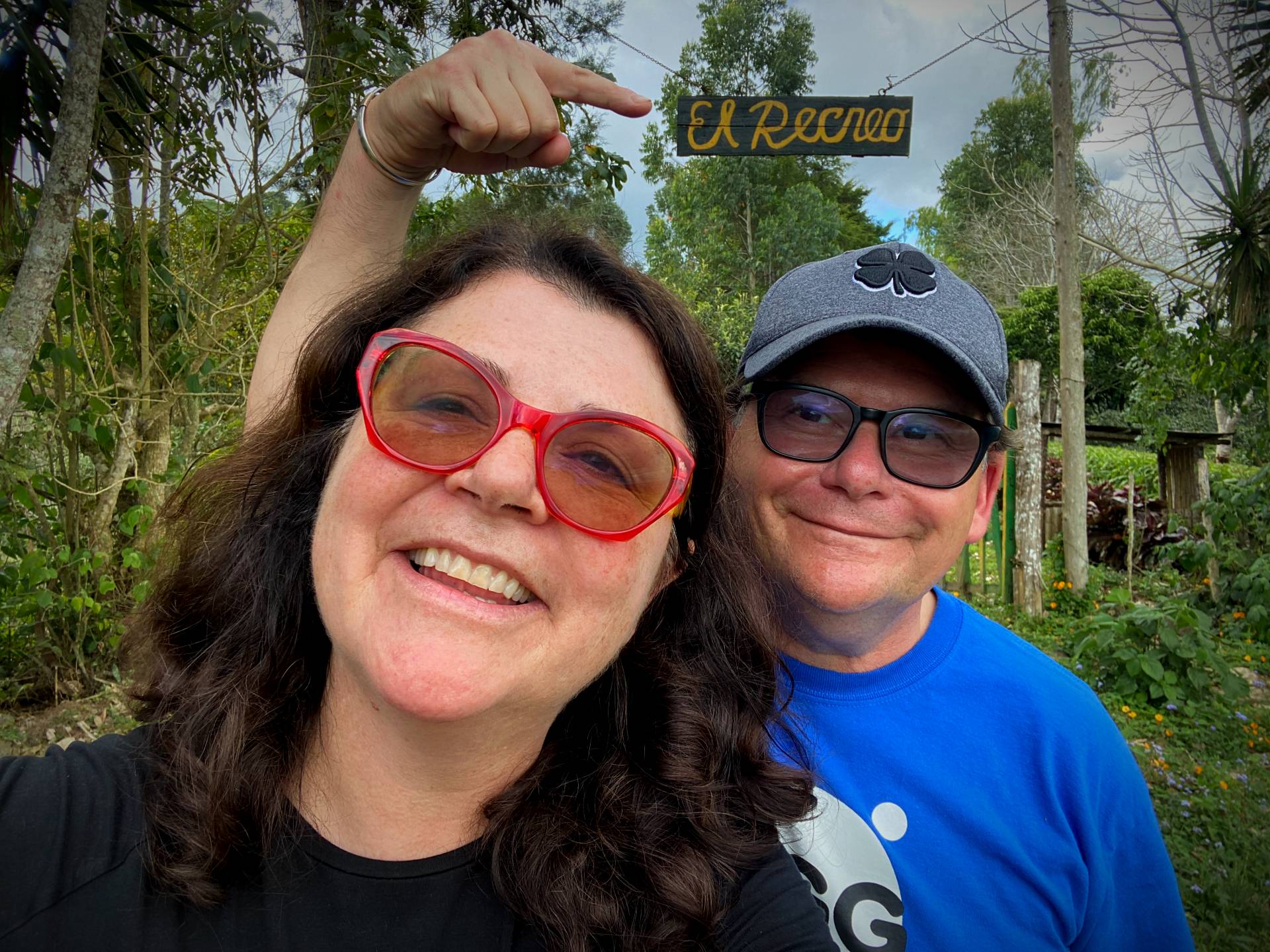
What We Found
I am delighted to report that the state of the Farm is strong. On our recent visit, we bundled out of the SUV that brought us from Managua one very warm March afternoon to find the Farm bustling with activity. Harvest season was over, but work on a Farm happens 365 days a year.
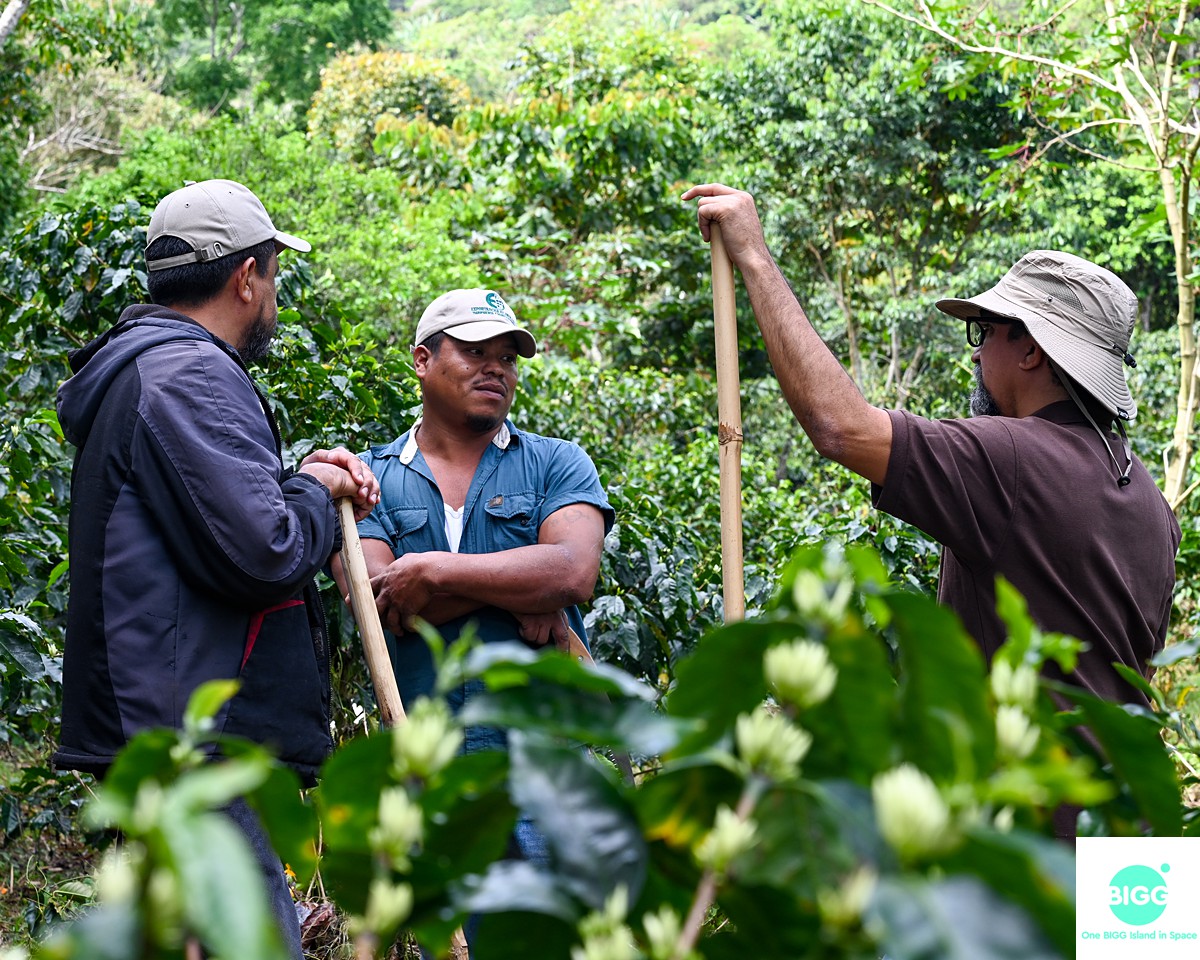
The chores that had been delayed for picking the cherries were now demanding attention. Workers headed to the fields with machetes in hand to clear the weeds. The few with the skills and training also carried saws to undertake the necessary pruning and tissue management to help keep the coffee trees healthy.
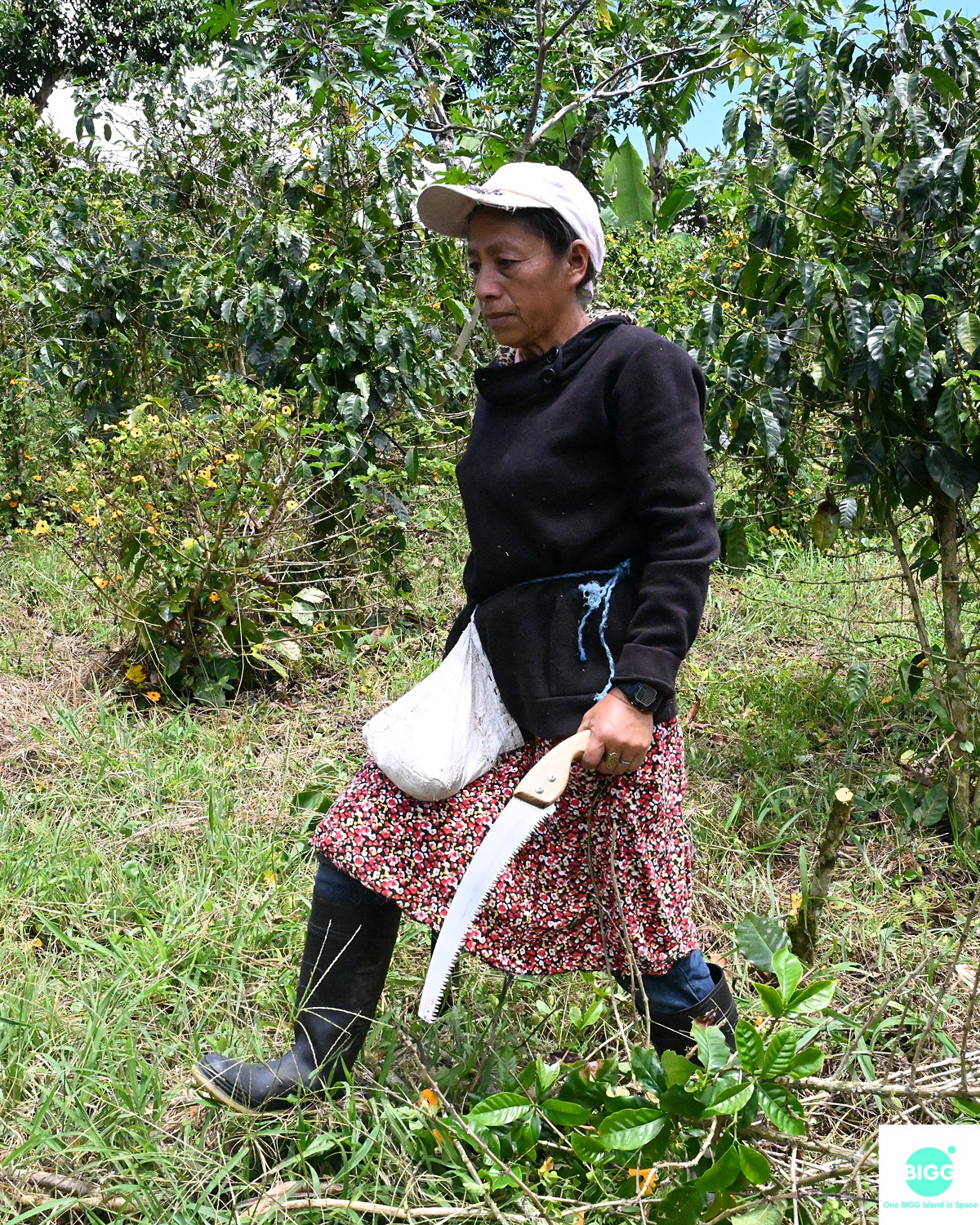
The seedling farm is bursting with new rust resistant varieties ready to plant in the fields. Repairs and maintenance are underway on the Farm buildings and equipment. And the heart of the Farm is still the communal kitchen where Yolanda stirs the Farm coffee, and pounds out the handmade tortillas that keep the workers and their families fed, three meals a day.
So, let’s break down some of the progress we saw, based on People, Planet and Community.
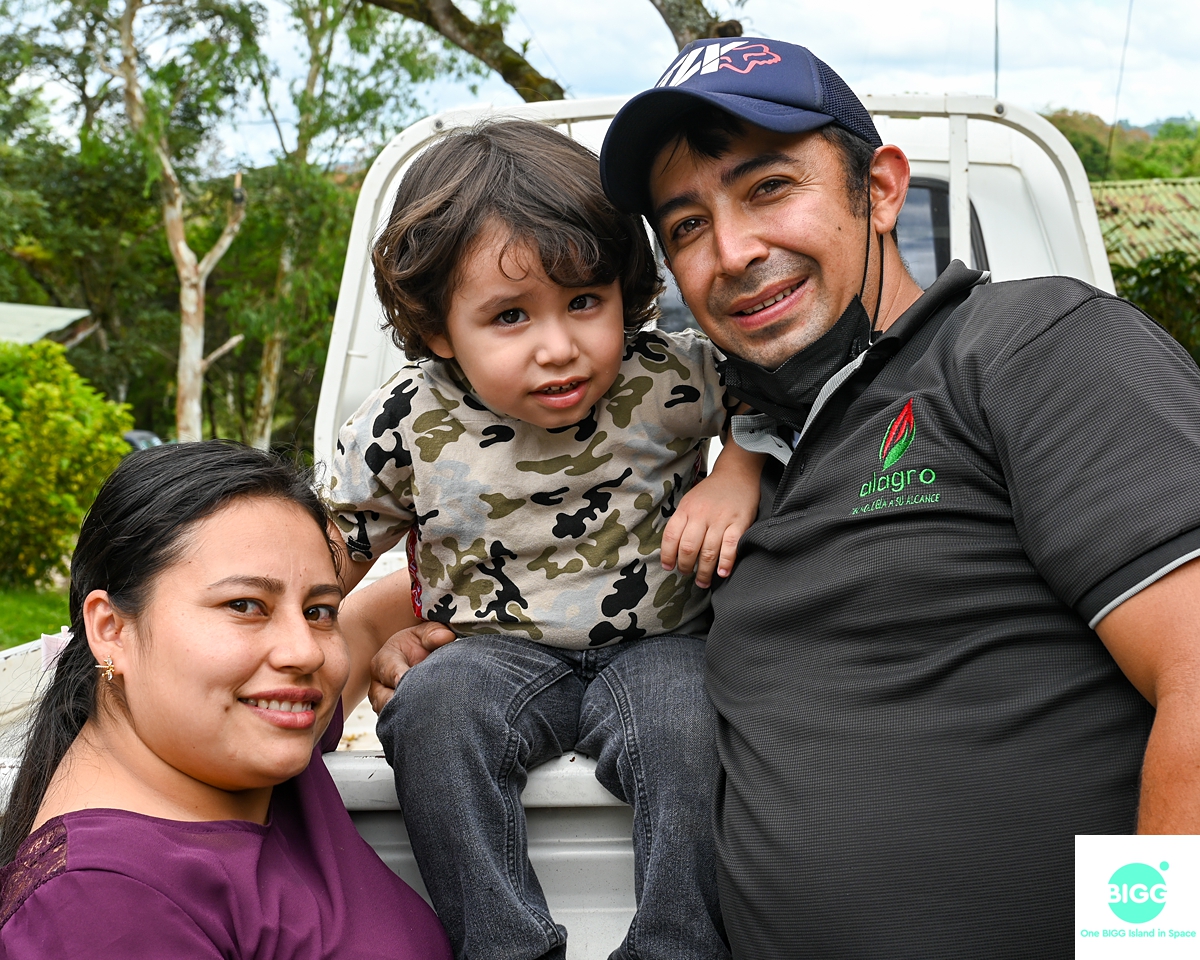
People
Our first introduction to the El Recreo Coffee Estate was meeting Hector and Miriam at a Specialty Coffee Association of America Trade Show in Boston in 2019. One of the very first things that grabbed our attention was the way they took care of their workers. From providing housing and three meals a day, to building a school for the Farm worker’s children, and so many other initiatives, it made our heads spin. I can cheerfully report that in spite of the challenges of the last two years, those things are still in place. And even more progress has been made.
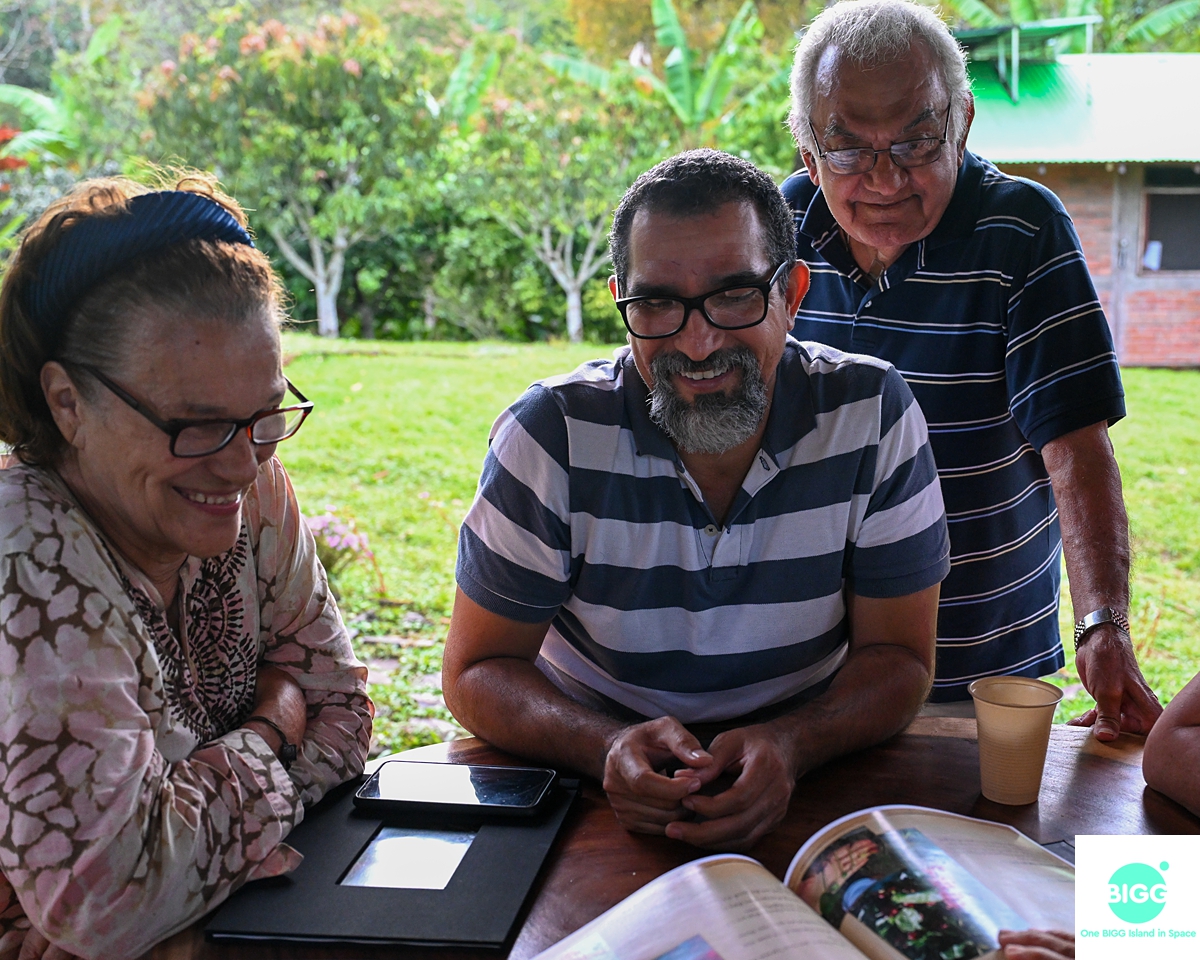
Financial stability has meant that Carlos and Leana were able to bring Jorge, their son, back to the Farm. A doctor by training, Jorge is a coffee farmer by passion. He had been helping to manage on the farm until 2019. But after years of the C-Contract price for coffee being scarcely high enough to break even, the Farm could no longer support him. He went back to being a doctor (just in time for COVID), in the neighboring country of Belize. Having Jorge back is a huge win for the family and the Farm. He brings a dogged scientific approach to sustainable agriculture and crop management. And his return also heralds a secure future for Farm stewardship.
The workers and their families made it through COVID-19 without one infection. And even though access to COVID-19 vaccines remains very limited in the rural areas, Leana found a way (she always does), to get everyone on the Farm vaccinated. Even through the most difficult challenges of 2020/21, they were able to keep the 30 or so permanent workers employed, and their families housed and fed.
The Farm is continuing to invest in improvements for the workers and their families. They have expanded the farm clinic and added new diagnostic equipment. In addition to the Farm Nurse, a doctor will be on-site weekly providing access to treatment and preventative care. For the first time in many of the workers’ lives, they now have access to a dentist. Imagine never having had a check-up, let alone a cleaning. For those that need more extensive dental treatment, the Farm will help with the cost.
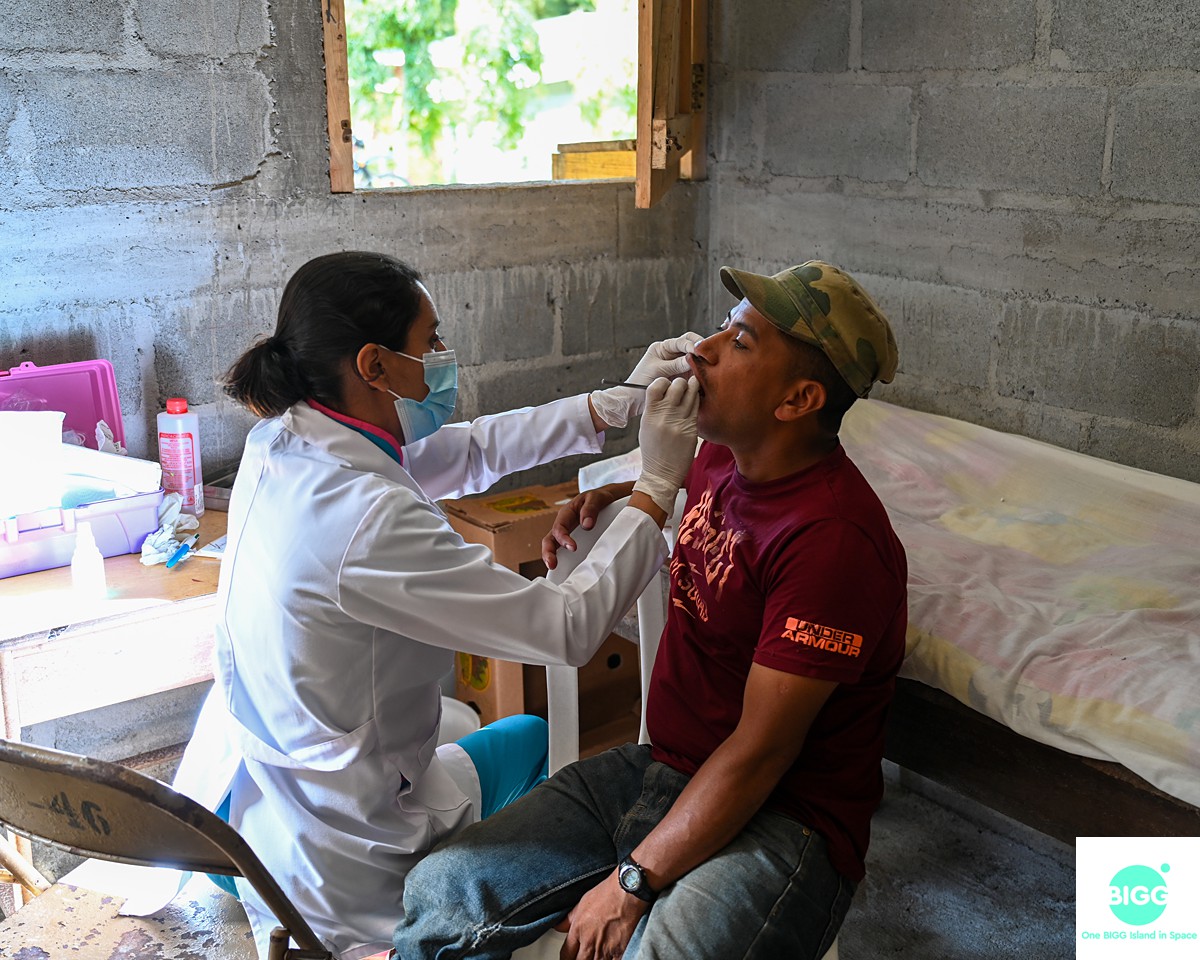
They are investing in new solar panels to help supply more stable access to electricity for worker’s housing in a place which is, by definition, “off the grid.” In addition, they have added overhead solar-powered lighting along what Miriam calls “downtown Recreo” that will make it easier for the families that live on the farm to move around after dark.
Work is underway to repair and improve the communal kitchen and dining facility, including replacing the chimneys that vent the smoke. While we were there, our travelling companions helped with the annual kitchen scrub down, and we spent an afternoon painting. Miriam swears that she had nothing to with picking BIGGBY orange as the new color, but I’m not so sure.
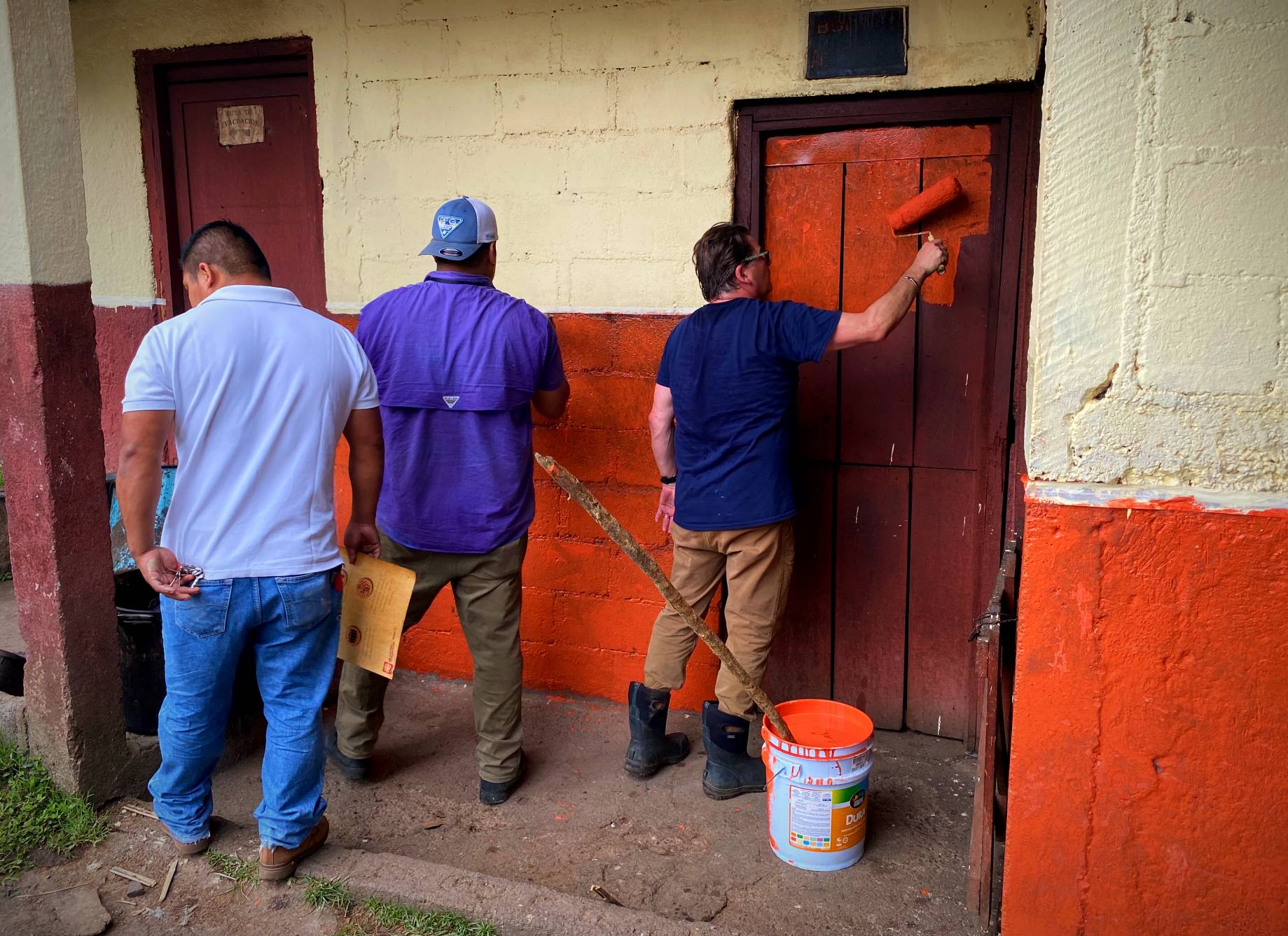
There are plans to reinvest in the indoor recreation area. After spending an evening playing pool with Carlos and Leana’s driver, Andres, our friend Nathan Havey can attest that the table and cue sticks could use a refresh. Not that it would have helped Nathan’s game any (smile).
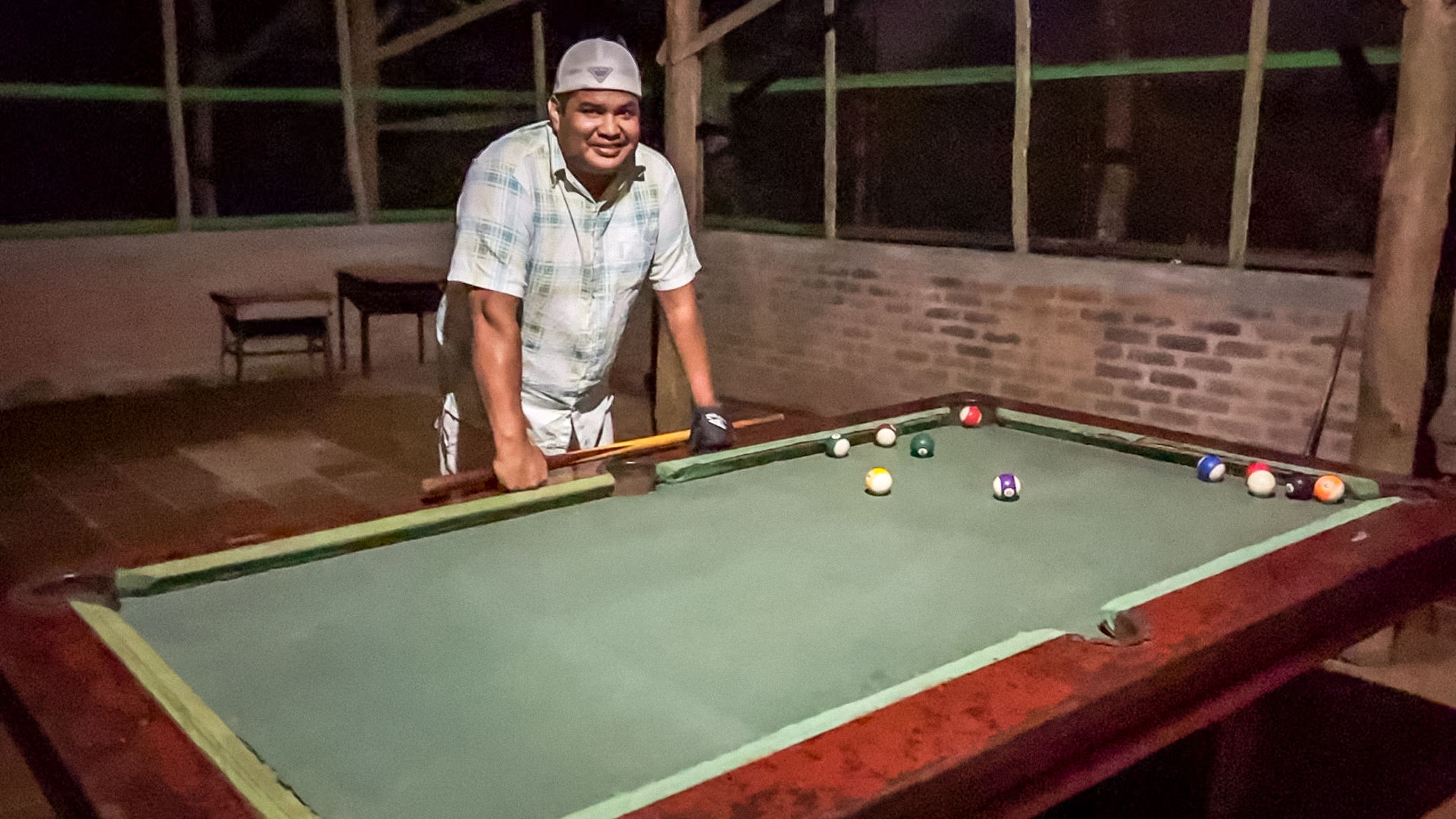
Planet
We’ve brought several people with us on our trips to El Recreo since our first visit back in July of 2019, and to a person, the fist thing that awes them is the beauty of the place. It is, of course, one thing to farm in a beautiful tropical rainforest. It is also a next-level responsibility to be a good steward of that land. And the Ferrey family is deeply committed to preserving the tremendous biodiversity of flora and fauna with which they are blessed in their part of the world. Just as importantly, they are fiercely committed to protecting the integrity of their soil’s microbiome, and the health of their water sources. Nothing about their commitment has changed. But surety of knowing that year over year, they will have the resources to invest has upped their game.
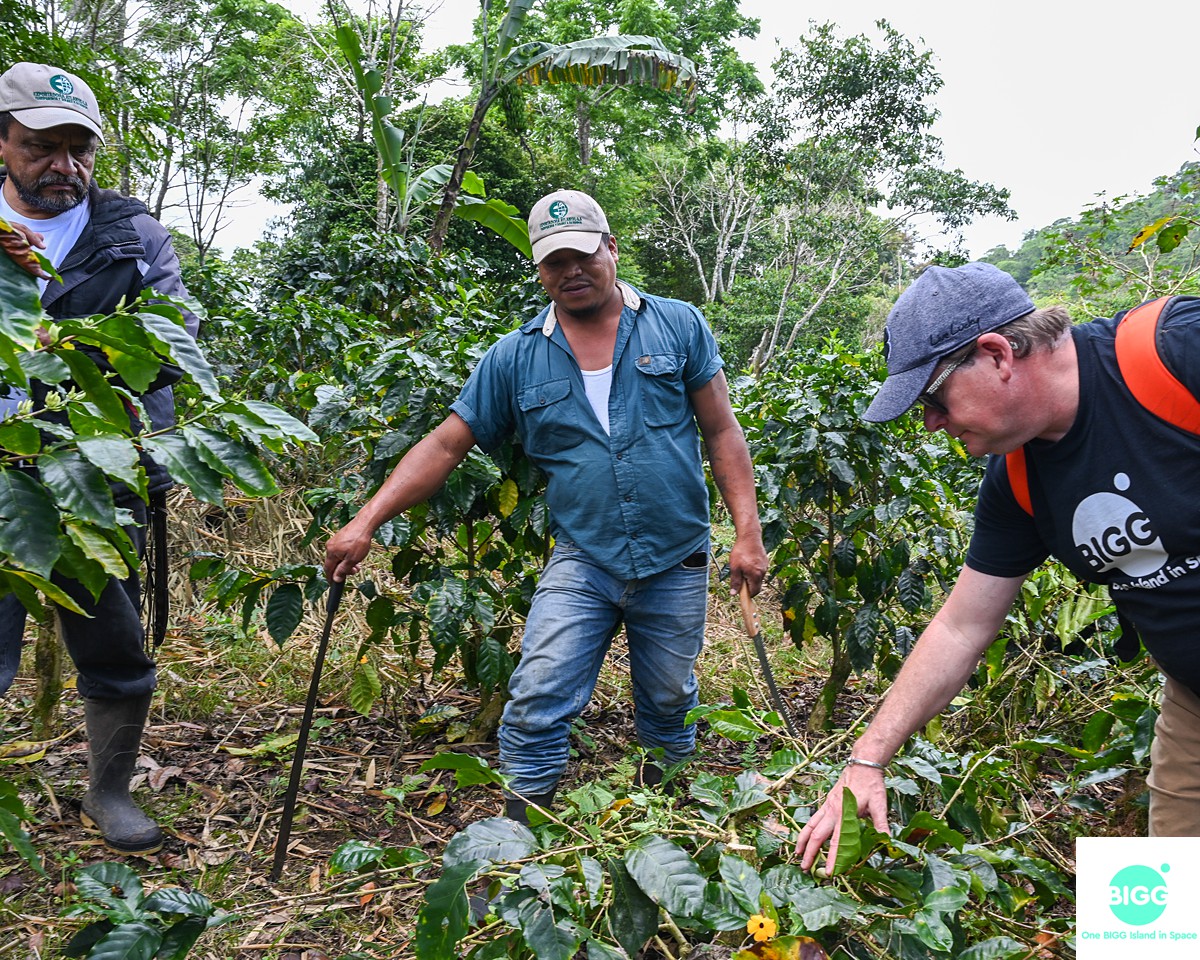
They completed a survey of all the planting fields, including counting every coffee bush currently in production.
They have undertaken an aggressive plan to plant or rejuvenate their coffee producing land by 2025. For the last several years, as the C-Contract price has been low, the Farm had become, in many ways, like a pair of trousers that were several sizes too large. There wasn’t a lot of point in maximizing the amount of coffee they could grow when the price they would be able to sell it for was less than the cost of producing it. But now, with access to the BIGGBY marketplace, they are committed to growing their production to keep up with BIGGBY’S growth. By 2025, they have committed to planting or rejuvenating 700,000 coffee bushes. That will produce an annual yield of somewhere between 1 to 1.5 million pounds of coffee per year.
They have introduced a number of new rust resistant seedling varietals to their nursery program and have vastly increased their nursery capacity.
In their quest to become a truly zero-waste farm, they have improved their water capture and reuse facilities, and expanded their composting efforts so that everything so that they can keep up with their increased yield.
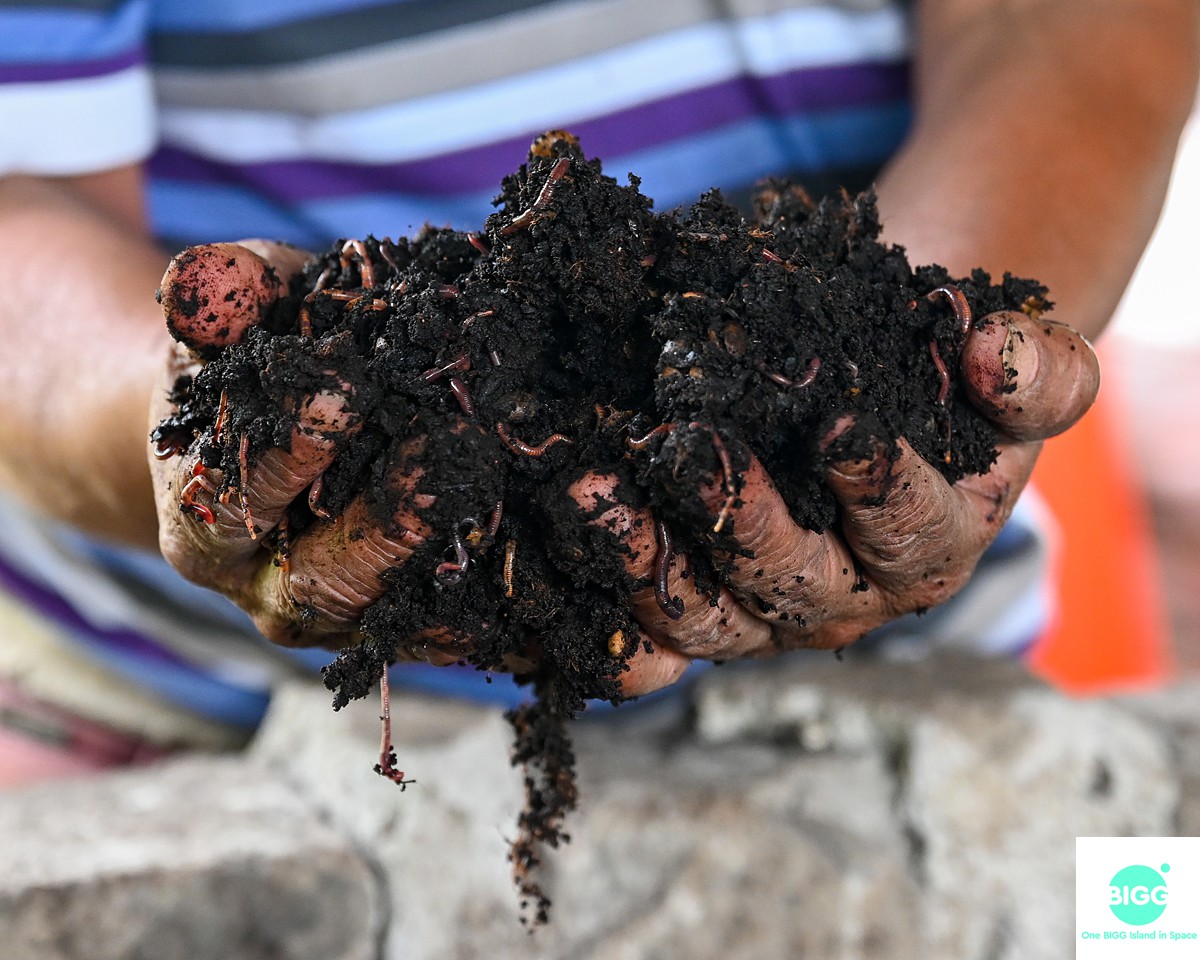
Community
In 2019, the Ferrey family was dreaming big about building a school for girls in Pueblo Nuevo, the small town that is nearest to the Farm. In rural Nicaragua, girls face strong cultural headwinds in their quest for an education. Through their own experience in educating the farm workers’ kids, they had noticed a trend among girls that started strong but ended up exiting education somewhere after the sixth grade. Sometimes, it’s pressure from the families for the daughters to stay home and care for younger siblings. Sometimes, sadly, they become mothers themselves at all too young an age. The idea was to create an educational environment that would provide extra support to both the girls and their families to help keep them focused on their futures. Unfortunately, the challenges of the last two years made that goal unattainable for now. But that doesn’t mean that they’ve given up on this generation of young girls.
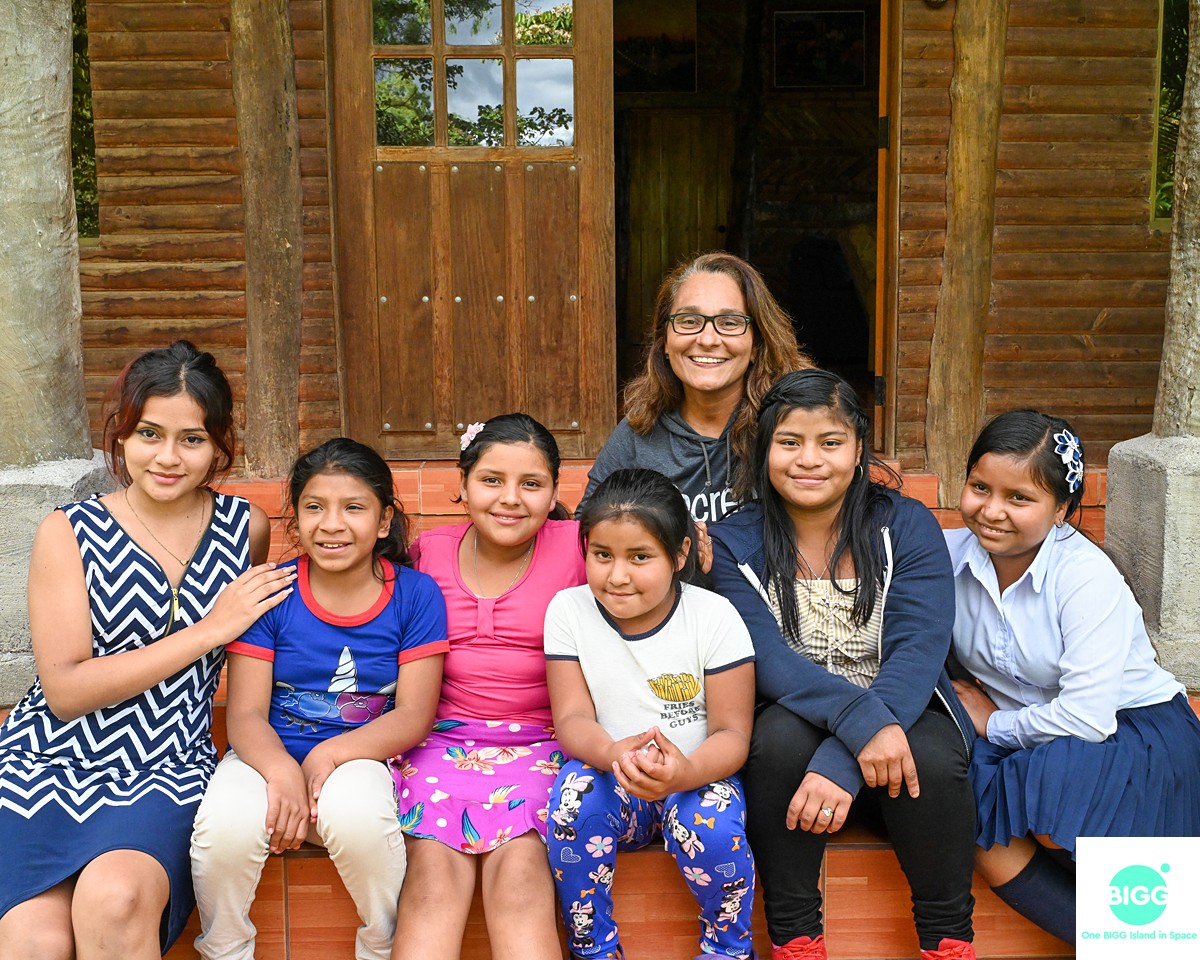
Miriam (top) with the newly formed Murjercitas mentoring group participants.
The Mujercitas. Roughly translated, it means “Little Women.” Miriam has started a mentoring project for young women, ranging in age from 8 to 13. She currently has six signed up. The inaugural event was during our trip. The idea is that these young women will receive extra tutoring in academic subjects, and a social outlet that wouldn’t otherwise be available to them. Miriam will be visiting the Farm every months or so and has plans to take them on outings and events that will further their education, but also help them to feel seen and valued. She will also be coordinating regular contact with the girls and their families to help them address the needs that can keep them in school. Two of the girls she recruited had already dropped out of school. But Miriam was able to get them back in. That’s a big win for a program that’s just getting started.
In conjunction with the Mujercitas Program, the Farm has started an official partnership with the school in Pueblo Nuevo. In practical terms, it means that the Farm will be helping to raise funds for books and supplies, as well as supplying resources and manpower for school projects that will benefit the entire community.
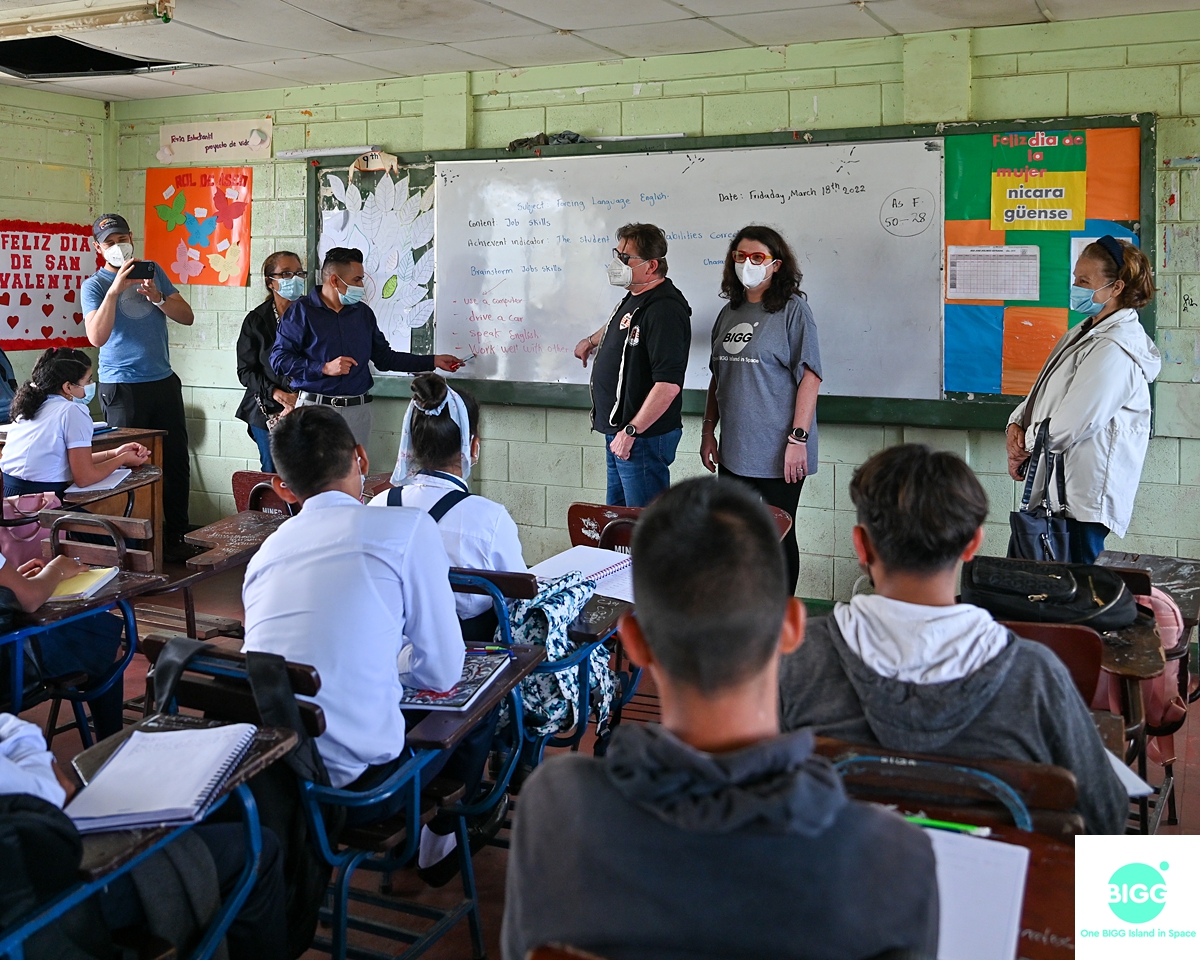
Our group was invited by the Pueblo Nuevo school’s English teacher to address the class.
The Farm has also undertaken a partnership with the clinic in Pueblo Nuevo to widen access to diagnostic equipment and wellness services.
To date, Leana has been the driving force behind the community support and social programs at the Farm. She will, of course, continue to be involved. But Silvio Guevara, a new addition to the Farm’s leadership team, will be picking up more of the day-to-day coordination.
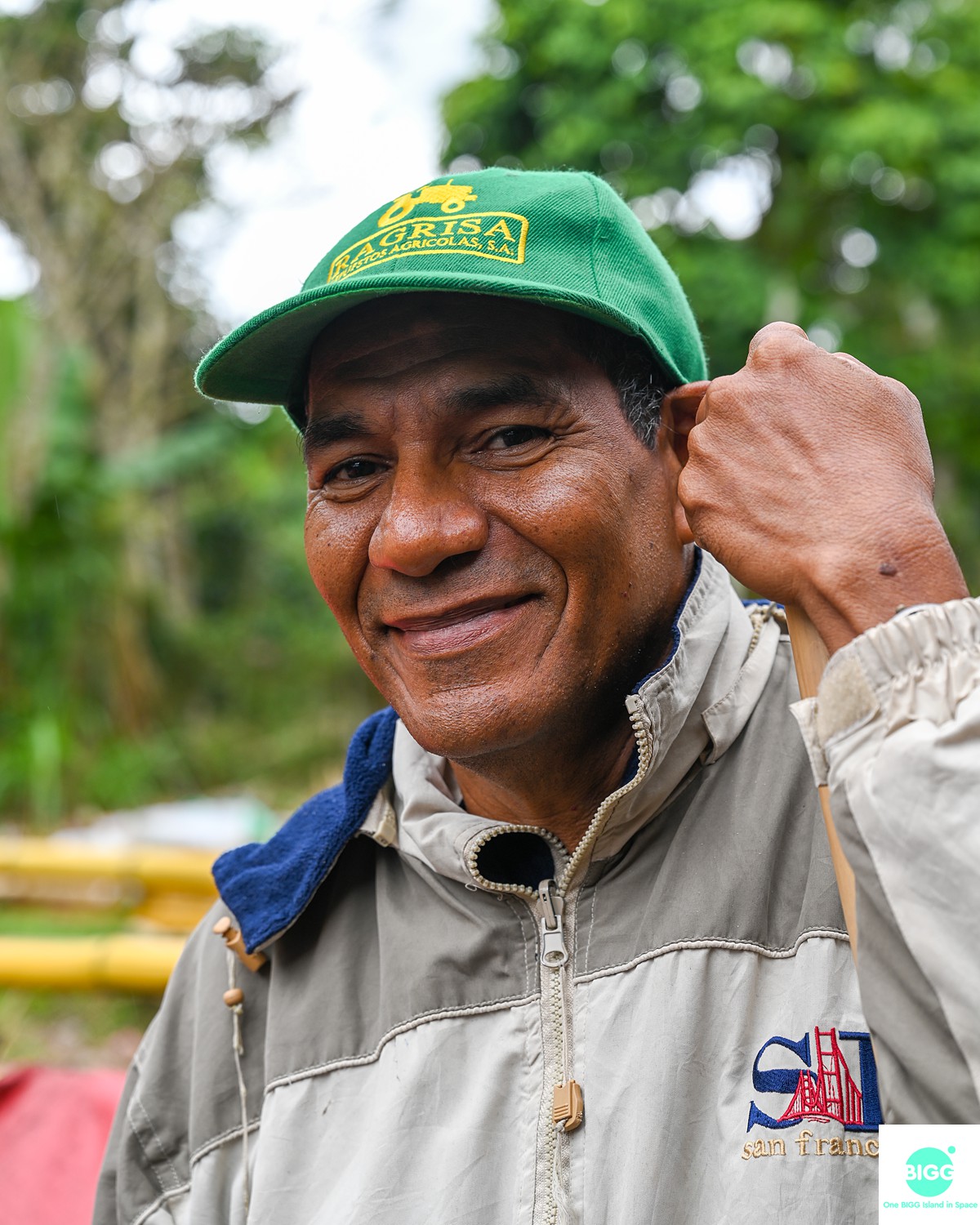
Silvio Guevara will be taking on the responsibility of day to day management of the Farm’s social programs and initiatives.
The Ferrey family have spent the last six months or so developing a list of goals and projects for the farm. For the first time in a long time, their timeline extends into the far into the future. That’s the power of knowing that we’ll be there as their partners and their marketplace.
As with all of our Farm-Direct partners, these are their dreams for the farm and their community, not ours. What makes it work is that we have shared values. We support them in their vision, and they support us in ours. That’s the power of Farm-Direct.
